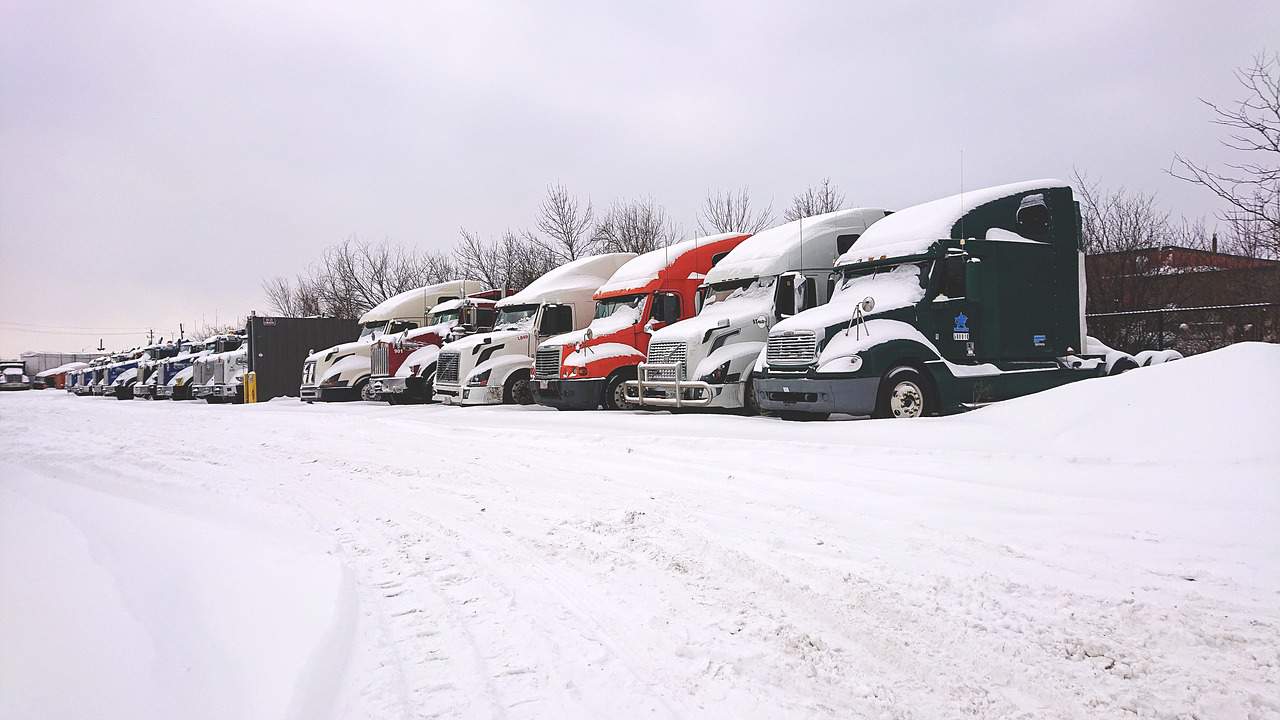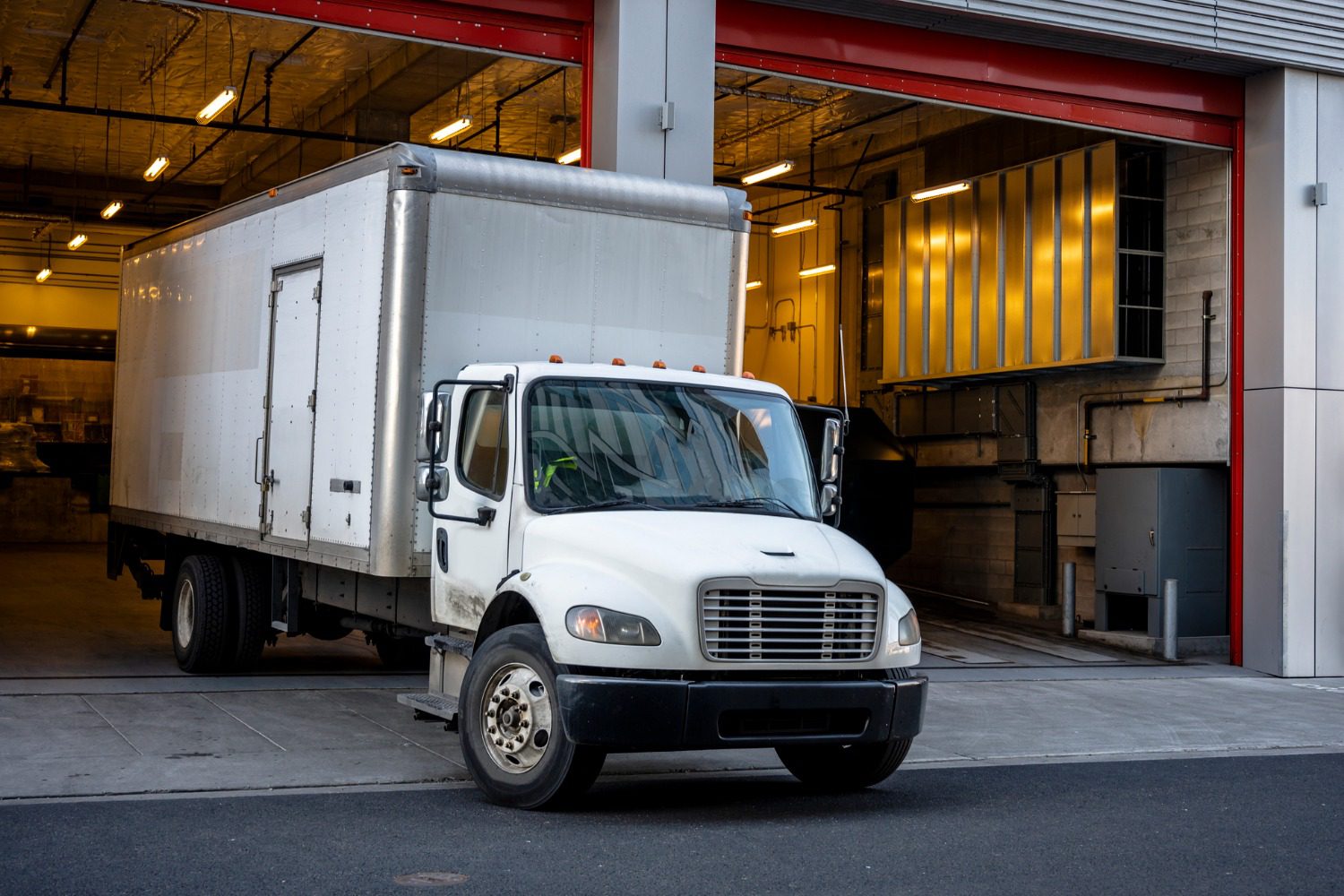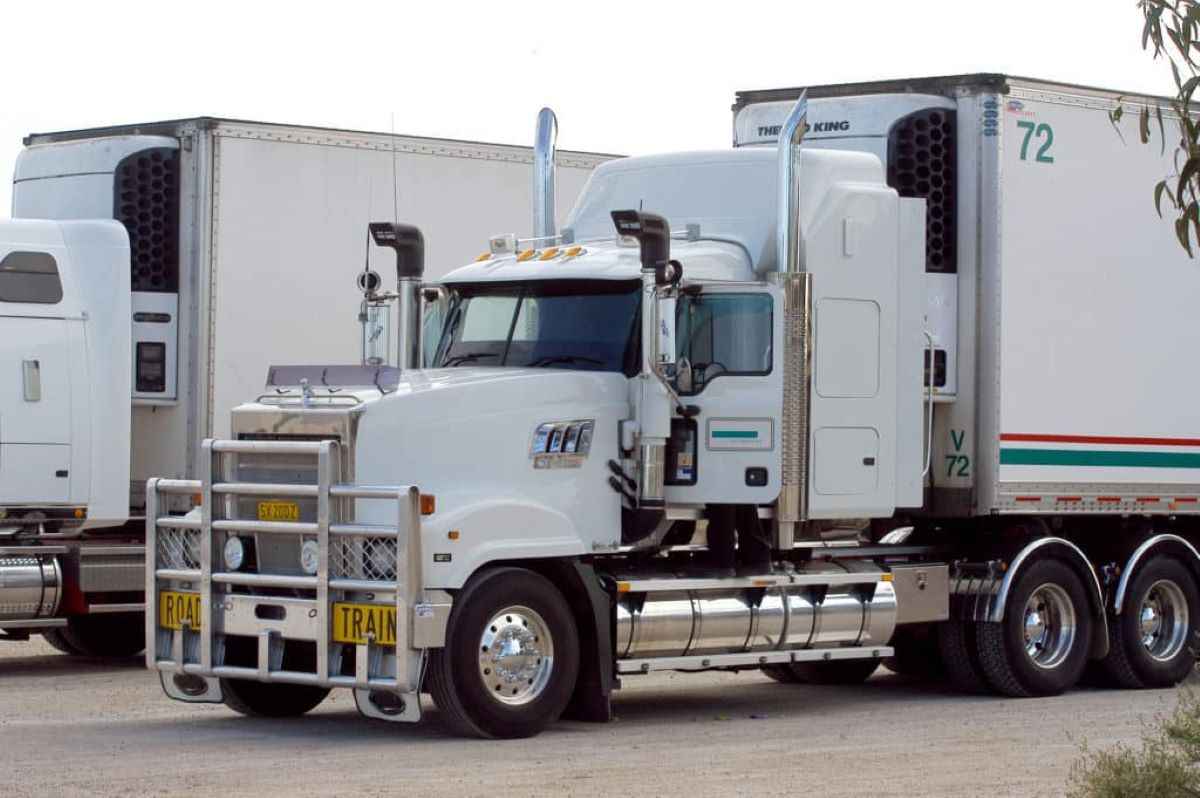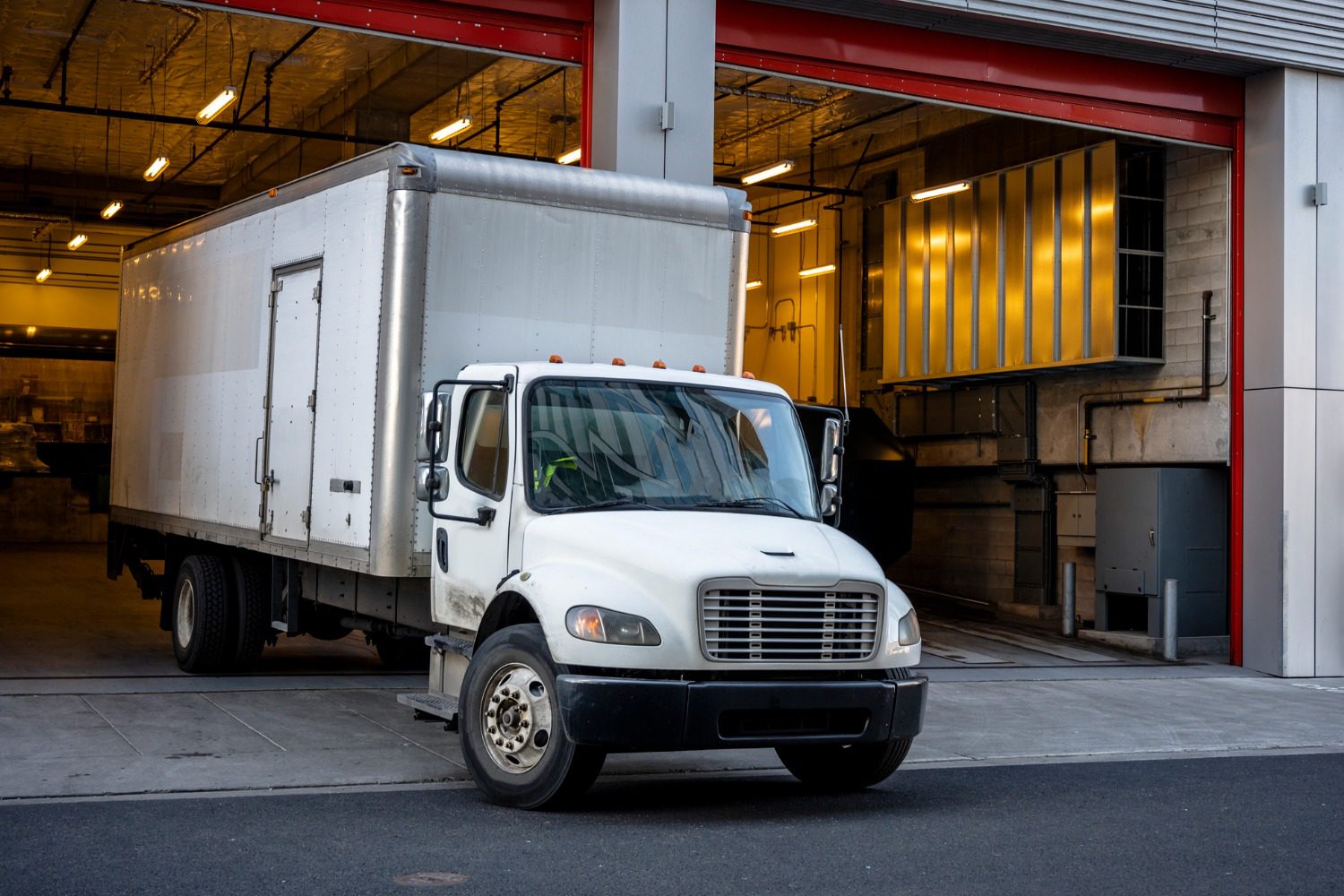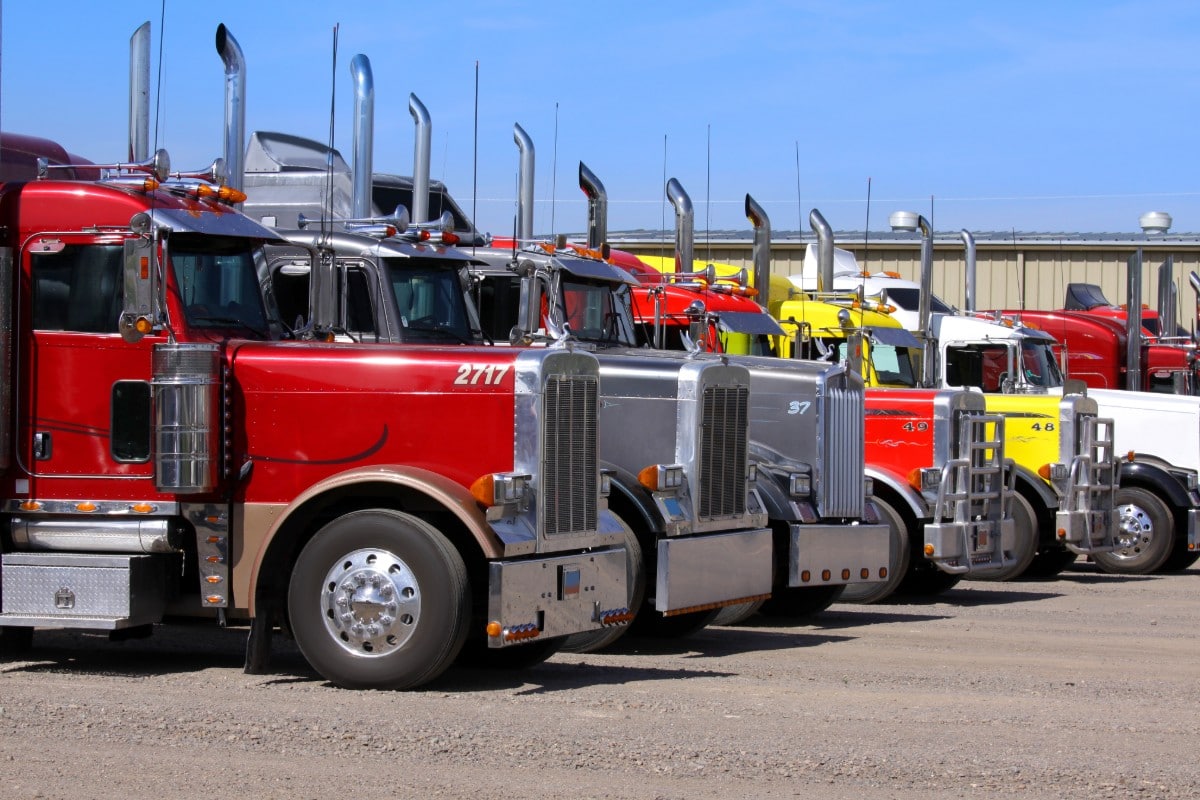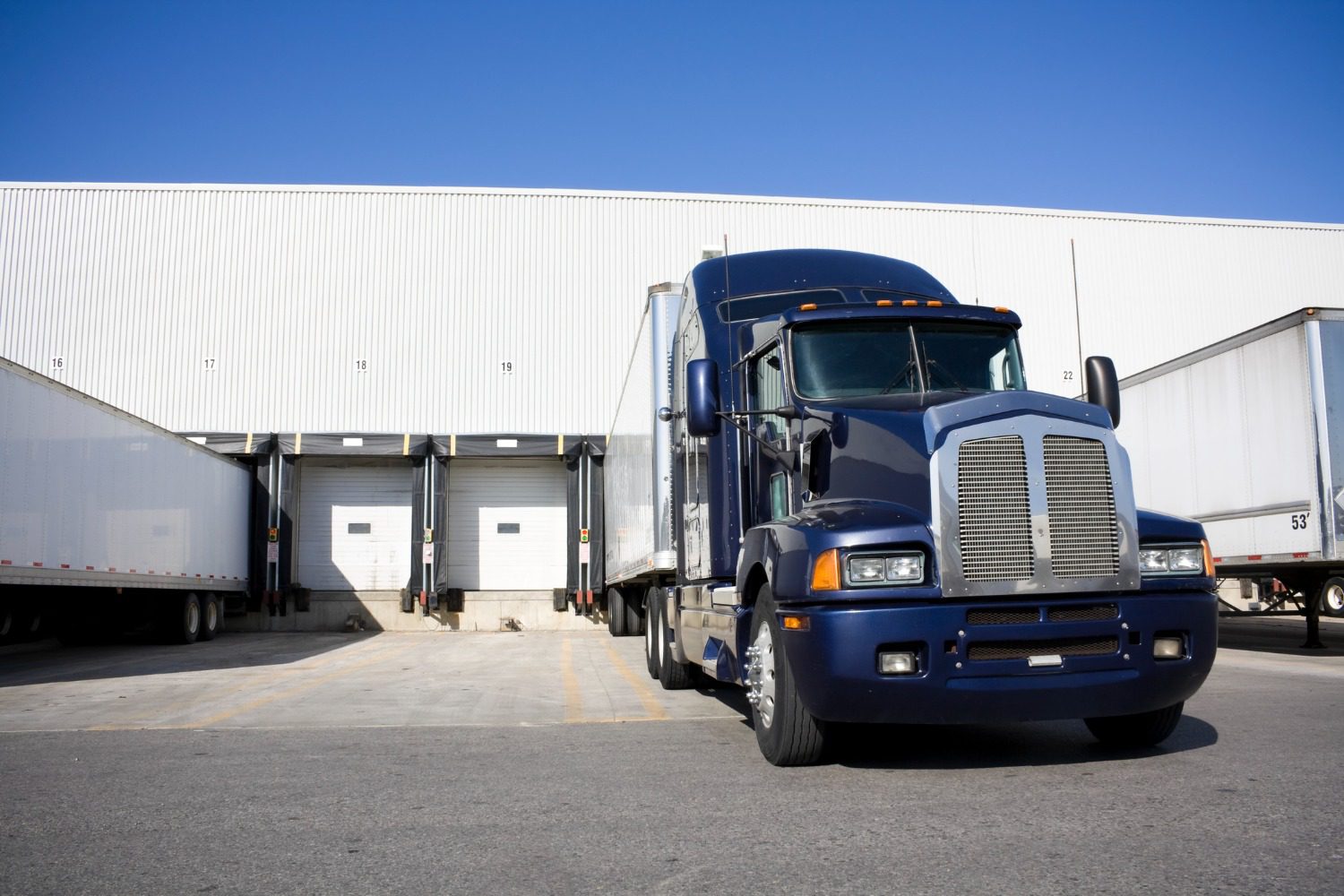

Finance
How Much Is Semi Truck Insurance?
Published: November 17, 2023
Find out how much semi truck insurance costs and get the best finance options for your business. Compare rates and save money today!
(Many of the links in this article redirect to a specific reviewed product. Your purchase of these products through affiliate links helps to generate commission for LiveWell, at no extra cost. Learn more)
Table of Contents
Introduction
Semi truck insurance is a critical aspect of managing a trucking business or being an owner-operator. Insurance coverage for semi trucks not only protects against financial loss in the event of accidents, but also ensures compliance with legal requirements.
The cost of semi truck insurance can vary significantly depending on several factors such as the type of truck, the goods being transported, the driving record of the owner/operator, and the coverage options chosen. It is crucial to understand these factors and explore the available insurance options to make informed decisions that balance coverage and cost.
In this article, we will delve into the key factors that influence the cost of semi truck insurance, discuss the types of coverage options available, provide an overview of the average costs, and share some valuable tips to help you lower your insurance expenses.
Whether you are a seasoned trucking professional or a newcomer to the industry, understanding the intricacies of semi truck insurance is essential. By having a comprehensive knowledge of its various aspects, you can ensure your trucking business operates smoothly while safeguarding it against potential risks.
Factors Affecting Semi Truck Insurance Costs
Several factors influence the cost of semi truck insurance. Insurance providers take these factors into consideration when calculating premiums. Understanding these factors can help you anticipate the insurance costs associated with your semi truck. Here are some key considerations:
- Driving Record: A clean driving record with no accidents or traffic violations reflects a lower risk profile and can lead to lower premiums. On the other hand, a history of accidents or violations may result in higher insurance costs.
- Experience: Insurance companies also take into account the experience level of the truck driver. Those with a long, accident-free track record are generally considered lower risk and may enjoy lower premiums.
- Type of Truck: The type of truck you operate plays a significant role in determining insurance costs. Factors such as the truck’s age, make and model, weight, cargo capacity, and safety features can impact premiums. Older trucks or those without advanced safety features may result in higher insurance costs.
- Cargo: The nature of the cargo being transported also affects insurance costs. High-value or hazardous cargo presents a higher risk and may result in higher premiums.
- Operating Radius: The distance your truck travels and the geographical area it operates in can influence insurance rates. Long-haul trucking operations generally have higher insurance costs compared to local or regional operations.
- Deductibles: The deductible is the amount you need to pay out of pocket before insurance coverage kicks in. Choosing higher deductibles can lower your premiums, but it’s important to consider your financial ability to pay the deductible in case of a claim.
Remember, each insurance provider may weigh these factors differently, so it is advisable to obtain quotes from multiple providers to find the best coverage and premium combination that suits your specific needs and circumstances.
Types of Coverage Options for Semi Truck Insurance
Semi truck insurance offers a range of coverage options tailored to the specific needs of trucking businesses and owner-operators. Understanding these coverage options is crucial to ensure adequate protection for your semi truck and operations. Here are some common types of coverage options:
- Liability Insurance: This coverage is legally required and provides protection in case you are responsible for causing bodily injury or property damage to others in an accident. It helps cover medical expenses, property repair costs, and legal fees in case of legal disputes.
- Physical Damage Insurance: This coverage protects your own truck against damage caused by accidents, theft, vandalism, or natural disasters. It typically includes both collision coverage, which covers damage from collisions, and comprehensive coverage, which covers non-collision damage.
- Uninsured/Underinsured Motorist Coverage: This coverage comes into play if you are involved in an accident with a driver who has insufficient insurance coverage or no insurance at all. It helps cover medical expenses and property damage in such situations.
- Cargo Insurance: Cargo insurance provides coverage for the goods being transported in your semi truck. It protects against loss, theft, or damage to the cargo during transit.
- Bobtail Insurance: Bobtail insurance covers your semi truck when it is being driven without a trailer, typically when returning from a delivery or during non-business use. This coverage is important for owner-operators who use their trucks for personal purposes as well.
- Motor Truck Cargo Insurance: This coverage is specifically designed to protect the cargo being transported in your semi truck. It covers loss, theft, or damage to the cargo while in transit.
- General Liability Insurance: This coverage provides protection against non-vehicle-related incidents, such as slip and fall accidents at your business premises or damage caused to property while loading or unloading cargo.
It’s important to assess your specific needs and consult with an insurance professional to determine which coverage options are essential for your semi truck. Consider the value of your truck, the type of cargo you transport, and the potential risks involved in your operations to make an informed decision about the coverage options you require.
Average Cost of Semi Truck Insurance
The cost of semi truck insurance can vary significantly depending on several factors, including the ones mentioned earlier. It is important to note that there is no one-size-fits-all answer to the question of how much semi truck insurance costs. However, we can provide some general guidelines regarding the average cost range.
On average, semi truck insurance premiums can range from $8,000 to $15,000 per year for owner-operators and $12,000 to $20,000 per year for trucking businesses with multiple vehicles. These figures are approximate and can vary based on factors such as your location, driving record, type of truck, and chosen coverage options.
Factors that can contribute to higher insurance costs include a history of accidents or traffic violations, transporting high-value or hazardous goods, operating in high-risk areas, and insuring older trucks without advanced safety features.
On the other hand, you may be able to find more affordable premiums by maintaining a clean driving record, choosing higher deductibles, installing safety features in your truck, and exploring discounts offered by insurance providers. It is also worth shopping around and obtaining quotes from multiple insurance companies to compare prices and coverage options.
It’s important to remember that these are average cost ranges and individual premiums can vary significantly. To get an accurate estimate for your specific situation, it is recommended to reach out to insurance providers and discuss your needs in detail.
Lastly, it’s crucial to consider the value of insurance coverage in relation to the potential financial impact of accidents, legal expenses, and damage to your truck or cargo. Investing in sufficient insurance coverage can provide peace of mind and protect your business from unexpected financial burdens.
Tips to Lower Semi Truck Insurance Costs
Semi truck insurance can be a significant expense for trucking businesses and owner-operators. However, there are several strategies you can adopt to help lower your insurance costs without compromising on coverage. Here are some useful tips to consider:
- Maintain a Clean Driving Record: A clean driving record demonstrates responsible driving habits and reduces the risk profile associated with your trucking operations. Avoid traffic violations and accidents to keep your insurance premiums lower.
- Increase Deductibles: Consider increasing your deductibles, which will lower your premiums. However, ensure you have enough financial resources to cover the deductible in case of an incident.
- Implement Safety Measures: Installing safety features in your semi truck, such as anti-theft devices, dash cameras, and telematics systems, can reduce the risk of accidents and theft. Insurance providers may offer discounts for implementing these safety measures.
- Focus on Driver Training: Encourage ongoing driver training and education for your truck drivers. Well-trained drivers are less likely to be involved in accidents, which can help lower your insurance premiums over time.
- Choose the Right Coverage Options: Assess your specific needs and choose coverage options that provide adequate protection without unnecessary add-ons. Avoid overinsuring or underinsuring your truck and cargo.
- Shop Around for Quotes: Obtain quotes from multiple insurance providers to compare prices and coverage options. Different companies may offer different rates based on their underwriting criteria, so it’s important to explore your options.
- Consider a Fleet Insurance Policy: If you have multiple trucks in your business, consider getting a fleet insurance policy. Insuring all your trucks under a single policy may result in lower premiums compared to individual policies for each vehicle.
- Bundle Policies: If you need other types of insurance coverage for your business (e.g., general liability), consider bundling them with your truck insurance under a single insurance provider. Many companies offer discounts for bundling policies.
- Regularly Review and Update Coverage: Periodically review your insurance coverage to ensure it aligns with your current needs. As your trucking business evolves, it’s important to adjust your coverage accordingly to avoid overpaying for unnecessary coverage.
Implementing these tips can help lower your semi truck insurance costs over time. However, it’s crucial to strike a balance between cost savings and adequate coverage for your business. Consult with an insurance professional to assess your specific situation and find the best insurance solutions.
Conclusion
Semi truck insurance is a necessary investment for trucking businesses and owner-operators to protect against financial losses and ensure compliance with legal requirements. Understanding the factors that influence insurance costs, exploring the different coverage options available, and implementing strategies to lower premiums can help you find the right balance between financial protection and cost-effectiveness.
Factors such as driving record, experience, type of truck, cargo, operating radius, and deductibles all play a role in determining the cost of semi truck insurance. By maintaining a clean driving record, increasing deductibles, implementing safety measures, and choosing coverage options wisely, you can work towards reducing insurance costs.
Remember to shop around for quotes from multiple insurance providers, consider bundling policies, and regularly review and update your coverage to ensure it aligns with your evolving business needs. Additionally, investing in driver training and education can contribute to safer operations and potentially lower insurance premiums over time.
While cost is an important consideration, it is essential to prioritize adequate coverage for your semi truck and cargo. Insurance protects your business from potential financial liabilities, such as accidents, property damage, and legal disputes.
Consulting with insurance professionals who specialize in the trucking industry can provide valuable insights and guidance to help you make informed decisions about your semi truck insurance. By striking the right balance between cost and coverage, you can ensure the long-term success and financial stability of your trucking business.
